Sport Rehabilitation and Physiotherapy for Footballers
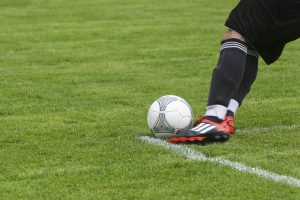 Football has always been a very popular sport in terms of support and participation amongst men, women and children alike. Due to this there are no shortages of injuries sustained through contact and non-contact events during training and match play. Football can be a large part of people’s lives, and here at Metro, we understand that a safe and speedy recovery is always a priority to ensure individuals can continue enjoying the sport they have a passion for. We provide the highest level of service by having a substantial amount of experience in the assessment and treatment of football related injuries. Our therapists have helped and treated many amateur and professional footballers from clubs across the north west, to ensure they are on top of their game when returning from injury.
Football has always been a very popular sport in terms of support and participation amongst men, women and children alike. Due to this there are no shortages of injuries sustained through contact and non-contact events during training and match play. Football can be a large part of people’s lives, and here at Metro, we understand that a safe and speedy recovery is always a priority to ensure individuals can continue enjoying the sport they have a passion for. We provide the highest level of service by having a substantial amount of experience in the assessment and treatment of football related injuries. Our therapists have helped and treated many amateur and professional footballers from clubs across the north west, to ensure they are on top of their game when returning from injury.
Common Footballing injuries
 There are a multitude of injuries that can be sustained whilst playing football. Not surprisingly, lower limb injuries are more prevalent, but varying age groups and player positions pose differing risk levels to certain injuries.
There are a multitude of injuries that can be sustained whilst playing football. Not surprisingly, lower limb injuries are more prevalent, but varying age groups and player positions pose differing risk levels to certain injuries.
Lower limb muscle strains, anterior knee pain and ankle sprains are common amongst the footballing population and more often than not, can be managed well with good quality treatment. More severe injuries such as Meniscal tears, Cruciate ligament tears and fractures often require attention from a specialist consultant if the injury is unable to be managed conservatively. If you are unfortunate enough to sustain on of these more serious injuries, treatment after a procedure can be essential to ensure a full and comprehensive recovery.
As previously mentioned, a player’s position can increase the risk of sustaining certain types of injuries. Upper limb injuries occur, but are less common in outfield players when compared with goalkeepers for instance. Acromioclavicular joint injuries, shoulder dislocations, ligament and tendon injuries to the elbow, wrist and hand can also occur within the footballing population.
Younger athletes face the risk of conditions related to stresses placed on their skeletal system. Osgood Schlatter’s, Sinding Larsen Syndrome and Severs Disease are all conditions that are brought on by increased stresses on an immature skeleton. Treatment and careful monitoring and management of activity levels can help with easing painful symptoms.
Reducing the risk of Football related injuries
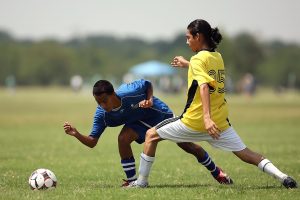 In order to reduce the risk of a football related injury, it is vital that your training programme consists of mobility, stretching, strengthening, sport specific movement patterns and proprioception.
In order to reduce the risk of a football related injury, it is vital that your training programme consists of mobility, stretching, strengthening, sport specific movement patterns and proprioception.
Tight muscles can cause imbalances and restrictions that can increase the risk of injury, so it is important that joints are kept mobile and elastic structures are appropriately stretched. Strengthening muscles not only improves the muscle’s capabilities, but adds support to the structures they surround to decrease the risk of failure. It is key to include the correct mixture of stretching and strengthening to ensure there is a balance between stability and mobility.
Proprioception is the brain’s awareness of joint and limb position. It is important that this is continually trained, especially to reduce the risk of ankle sprains. It is also fundamental, that after a traumatic injury, proprioception is trained to reprogram the neural pathways that may have been altered by any change in the joint position. At Metro, your therapist will have a plethora of sport specific exercises to prescribe, ensuring a smooth transition back to sport.
Treatments following a Football related injury
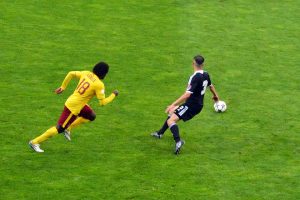 Most of our therapists are directly involved in sport, so understand the demands that are required. Varying treatment techniques are employed to aid in the rehabilitation of a sporting injury. Your therapist will assess and observe your biomechanics to identify any underlying dysfunction that could have caused the injury or lead to a repeat injury. Following this, a plan will be formulated to overcome any issues that are detected.
Most of our therapists are directly involved in sport, so understand the demands that are required. Varying treatment techniques are employed to aid in the rehabilitation of a sporting injury. Your therapist will assess and observe your biomechanics to identify any underlying dysfunction that could have caused the injury or lead to a repeat injury. Following this, a plan will be formulated to overcome any issues that are detected.
Treatment sessions will be tailored towards the individual and the injury, but will typically consist of some of the following techniques; deep tissue massage, deep frictional massage, trigger point release, joint mobilisations, fascial release, Ultrasound Therapy, acupuncture, proprioceptive neuromuscular facilitation, taping/strapping and a specific tailored exercise programme.
Football Injury Specialist
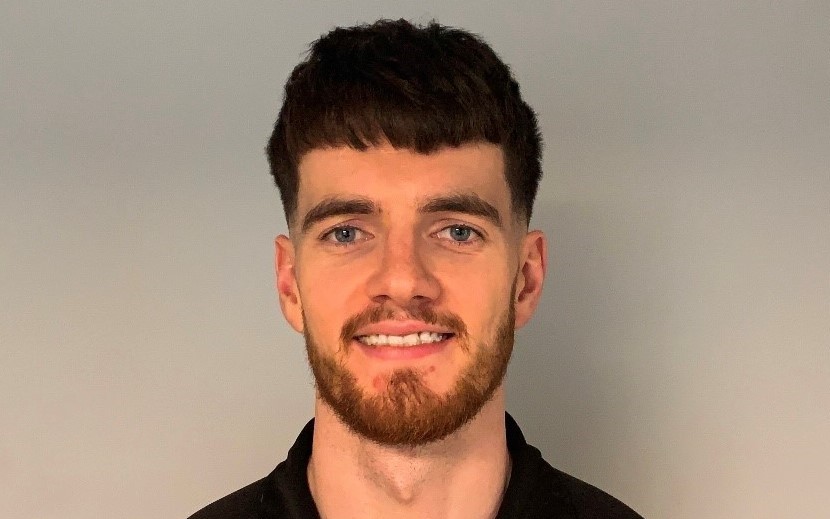 James Sweeney is our football related injury expert and has experience working with elite, Championship level footballers. As a keen footballer himself, he is fully aware of the issues that can arise from training and match play. James brings his experience from both the gym and pitch side with these clubs, to ensure the highest level of assessment and rehabilitation is provided to his patients. Alongside completing the Immediate Care in Sport course, both James and Ben keep up to date with current treatment techniques by regularly meeting for in-service training/CPD’s within the clinic.
James Sweeney is our football related injury expert and has experience working with elite, Championship level footballers. As a keen footballer himself, he is fully aware of the issues that can arise from training and match play. James brings his experience from both the gym and pitch side with these clubs, to ensure the highest level of assessment and rehabilitation is provided to his patients. Alongside completing the Immediate Care in Sport course, both James and Ben keep up to date with current treatment techniques by regularly meeting for in-service training/CPD’s within the clinic.
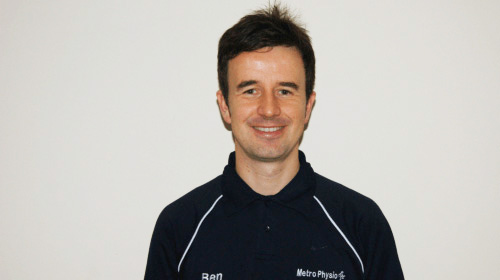 Ben Farrelly also has a special interest in football related injuries. As well as being an avid football supporter, Ben has played amateur football in the Manchester/Salford area and has gained football coaching qualifications through the FA. As a student Ben worked in New York for 2 summers coaching football on an elite sports camp.
Ben Farrelly also has a special interest in football related injuries. As well as being an avid football supporter, Ben has played amateur football in the Manchester/Salford area and has gained football coaching qualifications through the FA. As a student Ben worked in New York for 2 summers coaching football on an elite sports camp.
Whilst on clinical placement in Hong Kong, Ben was fortunate to work with the Hong Kong National U23 team providing on field service and clinical based rehabilitation. Additionally, through Metro Physio’s partnership with the FA Ben has been actively involved in the treatment of many Amateur local football players and coaches in the area.
Recently, Ben spent 5 years working in a part time role as part of Manchester United’s Academy physio team. The role involved the assessment and rehabilitation of injured players at Carrington and the Cliff The role also required pitchside first aid cover for training and matches predominantly in the North-West, but also nationwide. In this role, Ben was also fortunate to travel with academy teams to various domestic and European destinations providing tournament physiotherapy cover.
